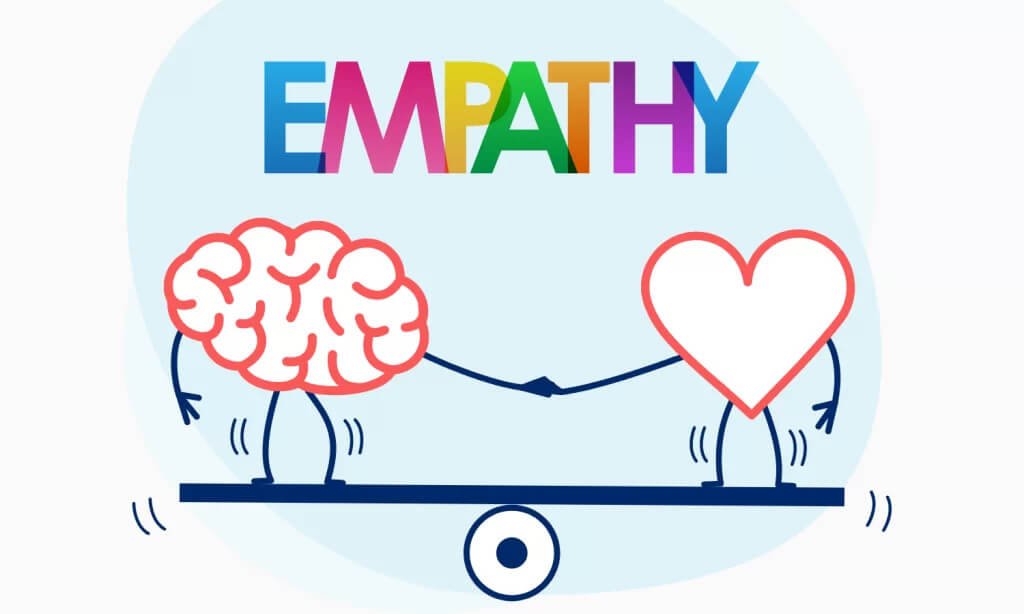Enhancing Empathy: 3 Steps To Strengthen Connections And Relationships Through Self-Awareness
Many of us are looking for ways to foster more meaningful connections and relationships in our lives. But sometimes, that can feel like an impossible task; after all, how can we really connect with others if we don’t understand and appreciate our own emotions? Fortunately, there are three steps you can take to increase your self-awareness and empathy so that you can create more meaningful and fulfilling connections. In this article, we’ll explore how self-awareness can lead to greater empathy and stronger connections with those around us.

Understanding Empathy and Its Benefits:
Empathy is the capacity to understand or feel what another person is experiencing from within the other person’s frame of reference, i.e., the capacity to place oneself in another’s shoes. Empathy is seeing with the eyes of another, hearing with the ears of another, and feeling with the heart of another. To be empathic is to sense the feelings of others as if they were our own and then respond with caring and compassion.
The ability to empathize with others is essential for developing strong relationships and maintaining healthy social interactions. When we can see things from another person’s perspective and share their feelings, we build trust and rapport. We also become better able to resolve conflicts because we can understand where the other person is coming from. Additionally, research has shown that empathy has a number of positive benefits for both individuals and groups.

Some of the benefits of empathy include:
- Improved communication and relationships
- Greater life satisfaction and happiness
- Increased self-awareness
- Enhanced emotional intelligence
- Stronger sense of personal connection to others
- Reduced stress levels

Step 1: Develop Self-Awareness
One of the most important skills for developing empathy is self-awareness. When we are able to understand our own feelings, needs, and reactions, we can more easily put ourselves in another person’s shoes and see things from their perspective. Here are some steps for developing self-awareness:
- Pay attention to your own emotions. Notice when you feel happy, angry, sad, anxious, etc. and try to identify the triggers for these emotions.
- Take time for introspection. Once you become aware of your emotions, take some time to think about why you feel that way. What are the underlying needs or values that are being fulfilled or challenged in this situation?
- Practice mindfulness. Once you have a good understanding of your emotions and why you feel them, it’s important to learn how to be present in the moment without judgment. This will help you be better able to understand and relate to others’ experiences.
- Seek feedback from others. Another helpful way to develop self-awareness is to ask for feedback from those around you. This can be done informally, by simply asking a trusted friend or family member for their honest opinion on a particular situation. Or, if you’re looking for more formal feedback, consider talking with a therapist or taking a personality assessment test like the Myers-Briggs Type Indicator (MBTI).
Step 2: Cultivate Emotional Regulation
It’s not uncommon to feel like our emotions are out of control or that we’re unable to cope with them. When we’re unable to regulate our emotions, it can lead to problems in our relationships and connections with others.
Fortunately, there are steps we can take to cultivate emotional regulation and improve our relationships. One key step is increasing self-awareness. When we’re more aware of our emotions and how they affect us, we’re better able to control them.
Another key step is practicing mindfulness. Mindfulness helps us to be present in the moment and focus on our breath or an object without judgment. This allows us to observe our emotions without getting caught up in them.
Finally, it’s important to have a support system in place. This could be a friend, family member, therapist, or any other type of support system that can help us through difficult times.
By taking these steps, we can start to build greater self-awareness and emotional regulation skills that will enhance our empathy and strengthen our relationships with others.

Step 3: Practice Compassion And Kindness
When it comes to empathy and compassion, one of the most important things we can do is to cultivate a regular practice of showing kindness and compassion towards others. This could involve something as simple as smiling at someone you pass on the street, saying hello to a neighbor, or holding the door open for someone.
It also could involve volunteering your time or making donations to causes you care about. The key is to make a conscious effort to be kind and compassionate on a daily basis. By doing so, you not only make the world a little bit better place, but you also help yourself become more empathic and compassionate as well.

Conclusion:
Taking the time to strengthen our empathy skills through self-awareness is a beneficial practice that can foster more meaningful connections and relationships with those around us. By recognizing emotions in ourselves and others, using mindful communication, and asking questions to help clarify information, we can start to open up channels for mutual understanding between people. Ultimately, practicing enhanced empathy has the potential to positively impact not only personal relationships but also larger communities as well!

